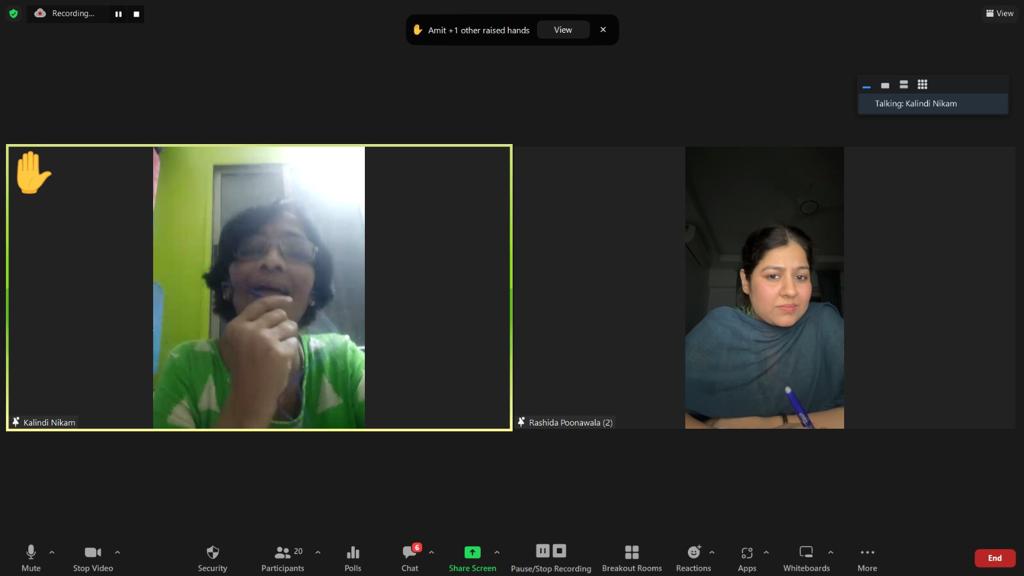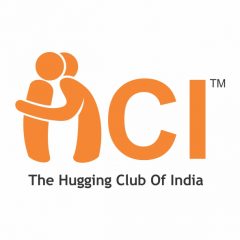As humans we would naturally want fulfilling relationships with our close ones. But how do we make sure that the bonds formed in our relationships are deeper, rather than at a surface level, and what should we do to maintain it that way?
Rashida Poonawala, an experienced mental health professional, a psychologist and NLP practitioner, based in Pune was our guest speaker to discuss this topic at our HCI online session on 9th August, 2023.

According to Rashida, the best tool that we have in any relationship is communication. If we do not talk, we will never understand the other person’s perspective. What affects relationships is the way we communicate: the pitch, the tone and the vocabulary we use. Human beings are complex. Sometimes what we do not mean what we say and sometimes we do not say what we feel deeply and leave things unsaid. Sometimes we do not say things that we think may hurt another person, whereas those unsaid things may actually repair the relationship or even prevent it from going down hill, if they were actually said.
Imagine a pot where water is being poured. Once it is filled and you keep pouring in more water, it will spill over and if you continue to add more water, the pot itself will start shaking. This is exactly what happens to our mind. Many a times when we talk to someone, we hear some things from them that may hurt us or affect us but we do not talk about it or confront it because there may not be openness or free space in that relationship. We keep pushing it to the back of the mind where we are constantly reminded of that and it keeps affecting us long after that conversation has ended.

A healthy relationship needs to have honesty, trust, respect, openness to any conversation possible and this helps in building self esteem. When we have all this, our mind will not be overburdened with things left unsaid or saying things you do not mean only to make the other person feel better, because of the openness, trust and honesty in that relationship. Both the partners in that relationship will then feel positive. What we think is how we behave. If we feel positive that is how we will behave with each other and that is what creates a healthy bond.
Highlights of Q&A Session:
Q. How to tell No to someone you love without hurting or losing that person?
Emotional attachment is different from emotional dependency. Many a times, it is emotional dependency that hampers a relationship. If you are thinking about how to say no, it means the basis of the relationship does not have openness and understanding, else this question would not arise. And if there is no openness and understanding, then where are you heading with that person is what you need to think about.

Learn to talk with your partner. Don’t go into a thought process where you are constantly thinking: “If I say no, how will he react?” “What will he feel about me and about our relationship?” “How will my saying No affect our existing relationship?” “I know how my partner thinks and he will get hurt”. We do not need to get into all this mind reading if there is openness and understanding. If you cannot talk, what is the point of being in a relationship? Be frank, give a specific reason for saying No. If you do not give a reason, your partner will not understand. Express your feelings and say how you feel. And then move on.
Talk to your partner, don’t be judgemental. Don’t criticise your partner. Validate your partner. Then the other person will also understand your point of view.

Q. Sometimes in a marriage the male spouse is always the one who is listening while the female spouse is talking. So the male does not feel heard and he goes to find some other friend who will lend him a listening ear and this creates an emotional bond outside the marriage but then the new friend also starts expecting more from the married male spouse. How to deal with this situation?
Statistically women are very emotional and get into detailing of everything, so they tend to talk more and the men usually are not like that and tend to take a step backwards. This is how usually the dynamic plays. But before the man goes out of the relationship to find someone else, he needs to reflect on whether he has actually tried to talk to his wife about his feelings and the fact that he does not feel heard and respected. But if you are feeling overwhelmed it is time to take help of couples’ counselling to repair the relationship. The counsellor will offer a free and non judgemental space where you can be heard.

Q. How to create a strong bond in a long distance relationship where one of the persons is introverted and not good at communication?
Physical closeness is important in a relationship and in a long distance relationship this important thing is missing. Communication becomes even more important in such a relationship so that the distance is not within 2 hearts (“dooriyan dilon mei nahin honi chahiye.”) Even though you don’t talk much, you can make the other person feel how important they are to you. Validate your partner. At least say what is important. No one is a mind reader, but you need to make the effort to say what needs to be said to make the other person feel that they are important to you.
Q. My mom is aggressive, dominating, self-obsessed by nature and my family is a dysfunctional one. She is short tempered. She had anxiety issues but she does not take medication for it currently. She takes advantage of my father. Emotional and mental abuse takes place in the house. She does not want to go to a counsellor because she feels it is a stigma and worries about what will happen when people find out. She is worried about “what others will think”. She has narcissistic tendencies and is manipulative. She has a “my way or the highway” kind of attitude.
In psychology 60+ is a geriatric person. So for a geriatric, only supportive therapy is possible. A person who has conditioned herself to live in a certain way for 50+ years of her life is not likely to change. It will simply cause conflict if she is forced to change. Since the family members are affected by her nature, they will need to work their way around her nature. You need to accept your mother as it is. But you need to set boundaries with her so that it does not affect you. You also need to support your father emotionally. Focus on yourself because your mother has already lived her life and you need to concentrate on your own mental health.

At this point Umang quipped in with a funny Bollywood reference where he said “So the song is useless: Ab toh hai tumpe har khushi apni. Tumpe marna hai zindagi apni”! Rashida responded with her own Bollywood reference where she mouthed a dialogue of Kareena Kapoor from the movie ‘Jab We Met’ where she says, “Mai apni favourite hun”. That is the attitude we need to have to focus on ourselves, our thoughts, our feelings and on our own mental health.
Q. How to have a relationship with your ex? You do not want to completely break away from them as they have been an important part of your life. Where do you draw the boundary and how to deal with the fear of falling in love again and getting hurt?
The feeling of the rush of emotions when in love (honeymoon period) lasts for a short time only. Later you get habituated to that person. Inspite of not being in a relationship, your ex is giving you something and that is why you are going back to that person. But you need to be careful and decide among yourselves what is expected and what is not expected, what is acceptable and what is not. One person could be seeing the other as a friend but the other one could still be in a vulnerable state. So a frank discussion needs to be done. The dos and donts and the boundary setting has to be clear. If 2 people are parting it should be on a happy note.

Q. Is monogamy a myth or is it possible?
It is an individual decision. We cannot comment or give an opinion on it. Everyone is not the same, just as all 5 fingers of the hand are not the same. There should be communication and openness among the partners that all of them are willing to accept this arrangement.
The session ended on a good note. It was an insightful one where we understood the importance of healthy bonds and how to cultivate them.
– Compiled by Amol More
– Written by Amit Rai
– Edited and uploaded by Mahrukh
